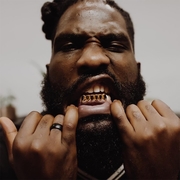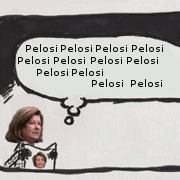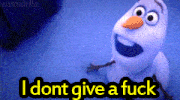|
 This came up as an interesting conversation in another thread and I figured this could bear some fleshing out. What does actual police reform look like? Do we actually need police? How do you go about enforcing laws with or without them? I think these are all great thought experiments and I think there can be some real good info and resources and ideas shared. As long as we stay pretty on subject I'd really like to delve into what ideas people have or have read, what works or has worked in their community, etc. Feel free to link to great reads - https://www.nytimes.com/2019/04/17/magazine/prison-abolition-ruth-wilson-gilmore.html is one that was linked in the last thread. I'd like to try to keep this to just what we call "police" but inevitably this has to include prison/jail and other systems without Criminal Justice. I'll start off with some resources from some classical lines of thought/policing structures from my studies starting with George Kelling and the "broken windows theory - https://www.theatlantic.com/magazine/archive/1982/03/broken-windows/304465/ ACLU - https://www.aclu.org/issues/criminal-law-reform/reforming-police Police Reforms - https://www.vox.com/2020/6/1/21277013/police-reform-policies-systemic-racism-george-floyd https://advancementproject.org/the-change-we-need-5-issues-that-should-be-part-of-efforts-to-reform-policing-in-local-communities/ https://www.themarshallproject.org/records/110-police-reform https://slate.com/news-and-politics/2020/06/trump-doj-obama-policing-reform.html History of police reform- https://en.wikipedia.org/wiki/Police_reform_in_the_United_States https://www.theguardian.com/commentisfree/2020/may/31/the-answer-to-police-violence-is-not-reform-its-defunding-heres-why ***WHAT DOES ABOLITION MEAN? WHAT HAPPENS TO RAPISTS AND MURDERERS IF WE HAVE NO COPS? Before asking this question, please review and * READ* the below work, it's very comprehensive and should answer the majority of the questions similar to above. https://medium.com/@OfcrACab/confessions-of-a-former-bastard-cop-bb14d17bc759 quote:"You might be asking, “What about the armed robbers, the gangsters, the drug dealers, the serial killers?” And yes, in the city I worked, I regularly broke up gang parties, found gang members carrying guns, and handled homicides. I’ve seen some tragic things, from a reformed gangster shot in the head with his brains oozing out to a fifteen year old boy taking his last breath in his screaming mother’s arms thanks to a gang member’s bullet. I know the wages of violence. Yuzenn fucked around with this message at 18:57 on Jun 9, 2020 |
|
|
|

|
| # ? Apr 26, 2024 21:01 |
|
gently caress 'em, gently caress 'em, gently caress 'em, even if they celibate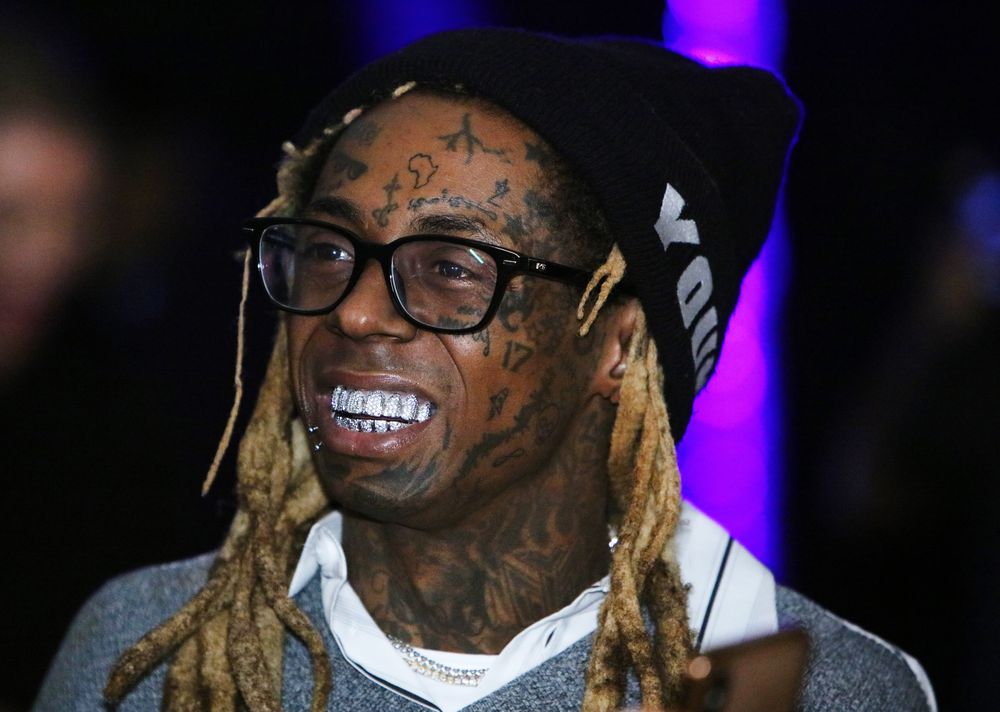 For real though, all of the past week will be in vane if real reform isn't done. Just arresting the officers isn't enough.
|
|
|
|
I guess I'll throw in the post I made a day or two ago in the UKMT (Yeah we talk about youse guys a lot  ) )Also note that I'm not necessarily married to any particular path forward, reform, abolition, etc., but this is the kind of dramatic overhaul I think is needed at a minimum quote:Reforming the US police would be a massive undertaking but I mean, it's not like the country lacks for resources, whether money, materiel, or manpower. This is after all the country that was able to set up places like Willow Run in WW2, and we've had most of a century of technological and management advances since then, the money is there, the people could be found, the systems could be implemented, if someone in power wanted to do it. One other thing I saw that I'd add to this since is that being a cop requires you to hold a professional license you must keep updated and in good standing, and if you lose that license for any reason, that's it, you can't just get hired at the next precinct over or some poo poo. Also; https://twitter.com/anarchonbury/status/1268311431436554245 https://twitter.com/anarchonbury/status/1268311431436554245 https://twitter.com/anarchonbury/status/1268311431436554245 https://twitter.com/anarchonbury/status/1268311431436554245
|
|
|
|
Just going to post some resources I've found helpful in motivating me to be an abolitionist (of both police and the carceral state in general). Very good interview of Mariame Kaba, a real deal abolitionist organizer who does amazingly great work in NYC and Chicago. posted:I believe that living in the way we live makes it difficult for most people to seriously consider the end of policing. The idea of security, the idea that cops equal security, is difficult to dislodge. To transform this mindset, where cops equal security, means we have to actually transform our relationships to each other enough so that we can see that we can keep each other safe and ourselves safe, right? Safety means something else, because you cannot have safety without strong, empathic relationships with others. You can have security without relationships but you cannot have safety—actual safety—without healthy relationships. Without getting to really know your neighbor, figuring out when you should be intervening when you hear and see things, feeling safe enough within your community that you feel like, yeah my neighbor’s punching [their partner], I’m going to knock on the door, right? I’m not going to think that that person’s going to pull a gun on me and shoot me in the head. I don’t believe that because I know that person. I know them. I built that relationship with them and even though they’re upset and mad I’m taking the chance of going over there and being like you need to stop this now, what are you doing? Part of what this necessitates is that we have to work with members of our communities to make violence unacceptable. What my friend Andy Smith has said is that this is a problem of political organizing and not one of punishment. How can we organize to make interpersonal violence unthinkable? From here: https://thenextsystem.org/learn/stories/towards-horizon-abolition-conversation-mariame-kaba "The End of Policing" grapples broadly with the question of "well if we don't have police then what" and you can get the e-book for free right now. https://www.versobooks.com/blogs/4729-the-problem-is-not-overpolicing-it-is-policing-itself Guidelines for abolitionist organizing around prosecutors and district attorneys: https://www.communityjusticeexchange.org/abolitionist-principles Great interview with Simone Browne about the anti-Black, white supremacist origins of policing and modern surveillance states - I also recommend her book "Dark Matters": https://truthout.org/articles/the-surveillance-of-blackness-from-the-slave-trade-to-the-police/ I would also recommend: - The Condemnation of Blackness - This Nonviolent Stuff’ll Get You Killed (this is more about armed community organizing than policing explicitly) - Rise of the Warrior Cop: The Militarization of America's Police Forces - Cities Under Siege - The First Civil Right - Are Prisons Obsolete - Women, Race, & Class - The Muslims Are Coming
|
|
|
|
|
Mat Cauthon posted:Just going to post some resources I've found helpful in motivating me to be an abolitionist (of both police and the carceral state in general). This is incredible thank you, and I was trying to find that link for the book in the other thread. This is a lot of reading so ill come back tomorrow or so when I get through most of it but thanks!
|
|
|
|
I think greatly reducing the types of crimes that people can be arrested for without a warrant would help. Summon people to court if enough evidence has been collected for a trial.
|
|
|
|
Carrying over from USPol, but I think that a significant amount of first responder duties that police currently deal with should be handled by someone other than police (on top of everything else already said here). I'm from Toronto, and we recently had a case where a black woman fell to her death from a balcony after the police were called in (some confusion remains over the initial reason for the call, but it's fairly clear she was going through a mental health crisis and there may have been some DV aspects). Not a lot is known right now about the exact circumstances of her death, which has given folks an opening to excuse the police, since it's totally plausible that she fell from the balcony while trying to escape the police, or something similar. But even if we're that charitable, and assume that the cops were perfectly well intentioned, and didn't display any threatening behaviour to her (as unlikely as that could be), a big part of the problem is that police, and especially armed police, shouldn't have responded to that call in the first place. You have a black woman with a history of mental health issues in the midst of a crisis - of course armed police officers entering her apartment are going to escalate the situation, even if they aren't being violent. Send social workers to deal with mental health crisises, or to help homeless folks. Send relationship counselors to less serious DV calls. At the very least, don't arm police answering these calls unless there's good reason to believe that someone's life is imminently in danger (and have an independent body review those decisions each and every time they're made).
|
|
|
|
Any topic about police reformation is enriched with content about Rojava: http://hawzhin.press/2020/06/01/how-to-abolish-the-police-lessons-from-rojava/
|
|
|
|
Glad to have found this thread. It amazes me that this is the solution that Biden's campaign has decided to go with. This is not enough, and it shocked me to read this. https://twitter.com/JoeBiden/status/1268349248170536962 I'm just continuously amazed at how terrible our structural components are with dealing with change. We're just frozen in time with a societal system that comes from slave owners that would routinely ingest mercury as medicine. I also wanted to share this book I heard about called The End of Policing, a digital copy is available for free at the link. https://www.versobooks.com/books/2426-the-end-of-policing quote:Recent years have seen an explosion of protest against police brutality and repression—most dramatically in Ferguson, Missouri, where longheld grievances erupted in violent demonstrations following the police killing of Michael Brown. Among activists, journalists, and politicians, the conversation about how to respond and improve policing has focused on accountability, diversity, training, and community relations. Unfortunately, these reforms will not produce results, either alone or in combination. The core of the problem must be addressed: the nature of modern policing itself. “Broken windows” practices, the militarization of law enforcement, and the dramatic expansion of the police’s role over the last forty years have created a mandate for officers that must be rolled back. I'm planning to read this whenever I'm not protesting or reading the forums for updates, the amount of events that are happening every day seem to simply take over my entire day. COVID-19 fucked around with this message at 02:24 on Jun 4, 2020 |
|
|
|
Guess i'll throw in the post I made in UKMT.jabby posted:Extremely difficult. It has to be top-down reform, similar to how other countries have had success tackling corruption. You would need to replace multiple levels of management, probably including local politicians. Embark on a major programme of recruiting ethnic minority officers. Institute psychological screening for new recruits. Overhaul police training, with a focus on de-escalation and community engagement, and make it much, much longer. De-militarise departments, ditching the scary black uniforms and armoured vehicles and reserve heavy weapons for a select, highly-trained few. Scared cops are dangerous cops, so spend plenty on officer safety but do it the correct way: top-of-the-line body armour, an effective partner system, and large enough departments that backup is rapidly available. Bodycams at all times that can't be disabled. Make sure cops are paid well and feel valued in their jobs. Use some of your new officers to set up an effective internal investigations department. Make it easy for cops who don't want to work under your new system to leave, with early retirement and generous pensions. tl:dr Role - The police are for crimes, not dealing with the mentally ill, drunk, addicted or homeless. Fund your social poo poo properly instead of using the police. Scope - Get rid of petty offences, treat drugs as a health problem not a crime. Stop "broken windows policing", all it does is create bad feeling within communities. Organisation - More BAME officers, better training, encourage old crusty officers to retire. Most effort should go towards community policing. Stop giving the majority of officers military-grade poo poo they don't know how to use, instead keep a small highly-trained force to send after actual dangerous criminals.
|
|
|
|
From doing quite a lot of reading tonight about abolishing police, and it feels to me (although I could certainly be missing something), that the "heavy reform" and abolition arguments are really trying to reach more or less the same end goal: - Local communities should have control and oversight over how laws are enforced - Law enforcement needs to be done in a way where escalation of force is an absolute last resort - Folks enforcing the law should honestly and genuinely be there to "protect and serve" the people in their community. - White supremacy, or bias against any oppressed or racialized group should be absolutely rooted out, full stop. The main difference seems to be a disagreement on what the most effective way to get there is. Being someone who argues for reform, it seems like a path that's more realistic and achievable in my mind. There's political will to add oversight to police, especially now. We can introduce complementary functions to police, like unarmed folks for routine violations like traffic issues, etc., or send specialists like social workers, while maintaining a "stop gap" of traditional police for more serious things (and gradually whittle it away). Definitely the unions are an issue when they'll fight any reform, but they'll clearly fight abolition as hard or harder, I don't see how eliminating the police is any easier of a task.
|
|
|
|
Yep. The murder of a cop is often automatically 1st degree regardless of pre-meditation, I believe, and while that's not completely unreasonable in an ideal society, the flipside of the argument that allows for that -- namely, that the murder of someone acting with the authority of the state is an especially serious crime -- is that one who murders while acting with the authority of the state is guilty of the most serious of crimes: a violation of the public trust and an absolute perversion of the authority they've been entrusted with. That's far, far more destructive and heinous a crime than any single act of murder, and that's why there's such anger being generated from this specific death. If George Floyd had been hit and killed by a drunk driver, he would be equally innocent, and equally dead, and there wouldn't be protests against drunk driving sweeping the nation.
|
|
|
|
jabby posted:Guess i'll throw in the post I made in UKMT. Part of my work happens to be with the homeless so yeah I'mma agree completely with the Role part. I've commissioned a racial disparity study so I can submit it not only to police but also healthcare institutions and the like, i'm trying to attack the angle that if they just let us in the homeless management system address our own consumers, they would save a significant amount of money and would not have to expend as many resources as they do - which traditionally lead to lovely outcomes anyway. Under Scope for sure, I experienced what came from broken windows in two different states (NY and NJ) and I actually had a class with Professor Kelling just after Giuliani had implemented most of it in NYC. The theory suffers from blurring correlation and causation and decriminalizing those "low level" offenses bears out to be better in almost every measuring metric, we shouldn't be INCREASING the level of enforcement and the harshness of the penalties! That policy led to a whole lot of people who were jailed who never should have been. Secondary to this discussion is how jail/prison isn't accomplishing or even trying to rehabilitate folks so that has to be a last option. I'm on the fence about criminalization of any drug, i'm with you that we need it to be completely a health and not a safety, issue. Organization - also agreed and I think requirements need to include living in the community in which you police. When I grew up we had substations where the "beat cop" would have to be their base of operations and it worked out quite well - everyone in the neighborhood knew him and could go to him about issues and any local events were his responsibility to man if they were small enough. It also saved budget wise because it created mini responsibility zones so that we could keep the police budget accountable for how many officers were truly on the beat. Edit* Saw this today and my apologies for linking the NY Daily News about anything but what do you all think about this? https://www.nydailynews.com/opinion/cops-carry-liability-insurance-article-1.3901990 Yuzenn fucked around with this message at 04:30 on Jun 4, 2020 |
|
|
|
I also want to point out, before a certain class of poster shows up: you can absolutely believe in and demand police abolition/reform without personally being able to explain every single detail of what it would like. The people asking you to can't even accurately describe the system we currently have.
|
|
|
|
Crumbskull posted:I also want to point out, before a certain class of poster shows up: you can absolutely believe in and demand police abolition/reform without personally being able to explain every single detail of what it would like. The people asking you to can't even accurately describe the system we currently have. I also think that the solution can look very different in different places. In Minneapolis or NYC: yeah, a huge part of the problem is that the police force doesn't represent the will or makeup of the community it serves. In MAGA territory, the problem is that it probably does represent the community it serves a bit too much. God knows Maricopa County did not do so well with having law enforcement officials elected by the population. So, reasonably, I think you can always point out a counterexample for which a given plan will not work; that should be a given in a diverse nation of hundreds of millions of people.
|
|
|
|
Police self-owns are always the best. https://twitter.com/stephaniejing2/status/1268149143584804864?s=21
|
|
|
|
|
Yuzenn posted:The theory suffers from blurring correlation and causation and decriminalizing those "low level" offenses bears out to be better in almost every measuring metric, we shouldn't be INCREASING the level of enforcement and the harshness of the penalties! Broken windows is a nice theory that the people in charge grabbed hold of to justify the draconian policies they wanted to implement anyway. I can totally buy that the quality of the shared environment matters (i.e. fix the single broken window quickly and nobody will break the rest), but that's a reason to invest in repairing/renovating urban centres and cleaning up litter. Stretching it to say that jailing the person who broke the first window for ten years is still somehow a good thing is where it breaks apart.
|
|
|
|
So I'm catching up with USPol and people are saying "just let the community police themselves." Is this where to talk about that because jesus loving christ. Do you want more people being lynched like Ahmaud was? Because that's what you're going to get. Like seriously, I'm trying to listen and understand this point of view here where you think the community can police themselves without turning into the same racist hate group the police currently are, only now "it's the will of the community! This sounds like white people libertarian fantasy poo poo. Boris Galerkin fucked around with this message at 08:03 on Jun 4, 2020 |
|
|
|
Boris Galerkin posted:So I'm catching up with USPol and people are saying "just let the community police themselves." So it'll be the same as now only we won't have to pay a police force and black people won't get lynched in predominantly black neighbourhoods? Yeah, what are they thinking, that's crazy.
|
|
|
|
Alright, I'm gonna try again and I'm really trying to be constructive here. In this community police fantasy, what do I do if my neighborhood-community decide that I can't live there anymore? Keep in mind that we already have these gated communities in the US with racist HOA heads who would love it if all the brown and black people left.
|
|
|
|
jabby posted:Broken windows is a nice theory that the people in charge grabbed hold of to justify the draconian policies they wanted to implement anyway. Also, the first part you said you're willing to believe is empirically incorrect too.
|
|
|
|
If you're taking 'community policing' to mean 'everyone votes on who gets to live in the town' then you'd probably have to move! Good thing thats not what anyone is talking about when they propose this. This is like asking 'what happens if my coworkers at a worker cooperative don't want me to work there anymore?' For one thing, thats already how it works except only people who arbitrarily hold positions of power make the decision. Obviously instituting a system where there was meaningdul community input on how violence was managed in the community would have basic agreements about what is and isn't permissible, what kinds of decisions are up to the community and what aren't and systems of accountability and appeal to ensure those agreements aren't violated. I don't even believe you think you're trying to 'be constructive' but if thats really your goal it might help to frame your questions in a way other than 'given the dumbest possible interpretation of your stupid idea what if a worst case scenario that could only happen if the implementation if your proposed policy is badly bungled (which I basically have no conception of outside of context clues from reading the name) happens to me? just trying to learn!'
|
|
|
|
Apologies if you're a person who is more likely to be targetted by e.g. racism, state violence, disenfranchisement etc. and you are seriously asking out of self interest but racist white communities already actively utilize the police (and economic and other mechanisms besides to drive people out of their communities. Advocates for.community policing and police reform do not also believe in abolishing civil rights, which should be obvious, and if it turned out that these reforms/reinventions were more harmful than the previous system (they obviously couldn't be but whatever) then they would advocate reforming back. People proposing this arent fanatically comitted to simple majority vote local democracy, they want an end to unnecessary violence and oppresion.
|
|
|
|
Crumbskull posted:If you're taking 'community policing' to mean 'everyone votes on who gets to live in the town' then you'd probably have to move! Good thing thats not what anyone is talking about when they propose this. No, but that’s one effect that community policing could have in some areas. That’s the issue. I mean it wouldn’t even bother me so much if community policing advocates would just admit: yes, community policing would result in some unwanted situations. But for some reason community policing will take place in environments where everyone will act in everyone else’s self interest? It’s a bizarre rejection of reality. For a lot of communities, this type of self policing would be great. But I - an idiot - can easily imagine situations where it isn’t great. Eg Someone has a dispute with a neighbour over something, it turns violent, they round up 20 of their friends with guns and demand that the other leaves. How would community policing handle something like? The response will be “we will an organise an even greater force to stop both”. But that isn’t always realistic, or will people even want to do it? Maybe not. Then you have a situation where someone is literally kicked out of a community. And what happens if that person doesn’t leave? What happens if one kills the other? Will that murderer receive justice? Only if the community believes that he should. He or she may just walk away free. The response to this will be, “this happens in communities now anyway”, and I agree, but I don’t see how community policing just doesn’t make that same problem worse. CelestialScribe fucked around with this message at 10:48 on Jun 4, 2020 |
|
|
|
CelestialScribe posted:No, but that’s one effect that community policing could have in some areas. That’s the issue. Shut up, idiot. Edit: Its already been explained to you that reforms or wholy new sytems of governance for managing community health and safety may have situations that still allow for harms, your vague feara do nothing to invalidate the proposal and in fact completely ignore the massive harms already caused by the existing system. What is your proposal for reforming the racist US police state that never produces any harms or unjust outcomes? Or do you believe that black Americans are currently living in the best of all possible worlds? ( do not answer this, instead, please shut up: idiot) Crumbskull fucked around with this message at 10:50 on Jun 4, 2020 |
|
|
|
Before this thread eats itself because of one reason or another... Can anyone recommend me actual good material on "police abolition" ideas? I.e., point-by-point program with research and maybe global experience to back it up? And not "police reform but with a punchy name". I am not opposed to learning something on the topic but whenever goons or random lefty on twitter boosts that, it is either "abolish first think later" cheerleading or something utopian/surface level so I can't help but be sceptical. edit: missed this good post, would appreciate more recommendations! Mat Cauthon posted:Just going to post some resources I've found helpful in motivating me to be an abolitionist (of both police and the carceral state in general). fatherboxx fucked around with this message at 12:17 on Jun 4, 2020 |
|
|
|
Community policing has its benefits but as was pointed out in the USPol thread, plenty of India has community policing (mainly for lack of resources) and that is not a great system - it soon becomes its own power structure within the community. Police should be from within the community they are policing but strongly oversighted and resourced from outside the community. I think there probably needs to be permanent police from the community and also rotating police cycling through the areas to provide fresh eyes and outside influence. Going to do more reading from the OP.
|
|
|
|
I feel like there's a circular argument with the abolitionists that I don't get. Please help me understand exactly how I'm misrepresenting the abolitionist argument, because I'm sure I am, but I don't know how else to interpret it. Abolitionist: We should let the community decide how to police themselves? Reformist: What if the community decides that lynching black people is OK? Abolitionist: You don't understand. These community decisions would only be made by cool and good people with cool and good ideas. The chuds won't show up for some reason. That last point is massively unfair, but I don't know how else to interpret it. If you live in a county where people are overwhemingly republican (say a county that had a margin of > 80% for Trump), who are the cool and good people who are going to argue for community policing solutions that don't involve "actually, lynching blacks is fine!"
|
|
|
|
Crumbskull posted:What is your proposal for reforming the racist US police state that never produces any harms or unjust outcomes? Or do you believe that black Americans are currently living in the best of all possible worlds? ( do not answer this, instead, please shut up: idiot) CelestialScribe and others posted a bunch in the USPol thread, but even within this thread, there's already been tons of clear suggestions (summarized here briefly): - Stop arming police in the vast majority of interactions - Community oversight of police through oversight and review boards with teeth composed of people in the community - Improved training and elibility requirements for police - Better / continuing to be decent (depending on local circumstance) pay for police, and focusing defunding on equipment budgets and number of officers - Requiring that officers pair up - Finding alternate first responders in certain situations (counselors for DV, social workers for mental issues, etc.) - Drawing police from the local community whereever possible and encouraging building ties with the community I'm sure I'm missing a bunch. I feel like you're trying to make the argument "abolish the police" vs. "do absolutely nothing", and no one has suggested that nothing should happen.
|
|
|
|
Crumbskull posted:these reforms/reinventions were more harmful than the previous system (they obviously couldn't be but whatever) How do you figure? Police departments have a lot to improve right now, but they could also be a lot worse. Police still at least sometimes investigate crimes committed against POC. In most cities, violence against LGBT communities is far, far reduced from where it was in the past (while I won't pretend all problems are solved, bathhouse raids and things like that are no longer a routine thing). Police do receive at least some training in de-escalation and mindfulness (notably, there was a significant amount of this in Minneapolis). This is by no means to excuse the police or say they're doing anything resembling a good job, but it could absolutely be worse, and has been worse in the past. quote:then they would advocate reforming back. People proposing this arent fanatically comitted to simple majority vote local democracy, they want an end to unnecessary violence and oppresion. You do seem fanatically committed to any solution being revolutionary and the complete abolition of the police force being a hard requirement, rather than one path to improve how the police function. I'm personally not necessarily even opposed to abolition fundamentally - I just genuinely don't understand what you're proposing beyond "Step 1: Get rid of the police. Step 2: TBD at a later date."
|
|
|
|
enki42 posted:CelestialScribe and others posted a bunch in the USPol thread, but even within this thread, there's already been tons of clear suggestions (summarized here briefly): I think what is being missed in the midst of people arguing past each other is that community policing and community oversight works partially because if you live in the community you work it's just much harder for you to break those social contracts on your own neighbors. I grew up in a town like this and that officer is far less likely to frisk me or get overly aggressive if I know his family or them personally. If a community policing or oversight board is out of line because the town is full of white supremacists that's a County and state issue to go in and take control. It happens all the time with school boards that end up under State control, we can have similar mechanisms. I know we can think this thought experiment through that we have lovely states and lovely leadership upwards from there but we aren't dealing with that here, that's not a thing that changes regardless of reforms and is a separate and distinct issue that needs solving concurrently with these ideas and thoughts in the thread. The other pillar - abolition seems like a pretty sweet idea because almost no reforms are possible considering how subverted our systems of justice have become by white supremacists. I'm not sure of a solution that works while supremacists are within every police force and union and often times have some of the highest positions. I'd hope that they could all get doxxed and removed but the people that are in charge of the removals won't remove their own. It's kinda catch 22-y unless we just toss out the whole system wholesale. And while yes something else similar might have to rise from those ashes, it would be significantly better for black people than anything we have now. https://twitter.com/samswey/status/1180655701271732224 Interesting thread on some data points (with caveats)
|
|
|
|
What CelestialScribe and enki42 are suggesting are not "abolition" so much as they are just garden variety reformist ideas that either allocate more resources to the police or put a slightly nicer veneer on police methods without changing the underlying white supremacist structure of modern policing in the United States. When people make those arguments, or hypothesize that a post-police status quo would be some lawless hellscape, they're deliberately ignoring the vast amounts of quotidian violence enacted and enabled by police happening right now, every single day - and I'm talking about normal times, not just pandemic riot world. fatherboxx posted:Before this thread eats itself because of one reason or another... Short answer:   From here: Reformist Steps vs. Abolitionist Steps in Policing - https://static1.squarespace.com/sta...tion_CRside.pdf posted:Ultimately, abolition is a practical program of change rooted in how people sustain and improve their lives, cobbling together insights and strategies from disparate, connected struggles. We know we won’t bulldoze prisons and jails tomorrow, but as long as they continue to be advanced as the solution, all of the inequalities displaced to crime and punishment will persist. We’re in a long game. From here: https://www.themarshallproject.org/2019/06/19/the-case-for-abolition Longer answer: posted:Abolition means not just the closing of prisons but the presence, instead, of vital systems of support that many communities lack. Instead of asking how, in a future without prisons, we will deal with so-called violent people, abolitionists ask how we resolve inequalities and get people the resources they need long before the hypothetical moment when, as Gilmore puts it, they “mess up.” From this very good article on Ruth Ann GIlmore and her work: https://www.nytimes.com/2019/04/17/magazine/prison-abolition-ruth-wilson-gilmore.html Much longer answer: Two of the most prominent scholars of police (and prison) abolition are Ruth Ann Gilmore and Angela Davis. I highly recommend reading any and everything they write, because they lay out the case very clearly and convincingly. Angela Davis in particular is a wonderful speaker who connects the need for abolition to everything from labor exploitation (here and in the Global South) to gender inequality to imperialism to Palestinian oppression. Here's a conversation between Ruth Ann Gilmore and Naomi Murakama (author of the First Civil Right) about Abolition right now in the context of the pandemic and other current events: https://www.youtube.com/watch?v=hf3f5i9vJNM Angela Davis on why reform is insufficient in dealing with the problems of policing and prison: https://www.youtube.com/watch?v=LfnbnTs0r-M The vital thing to remember, the thing that people who oppose abolition and concern troll about how without police the world will fall apart, is that we're not talking about just disbanding the police and walking away. No abolitionist expects to just turn a key or flip a switch and make the world perfect by getting rid of cops. This is meant to be a process, just as the creation of modern policing was, in which we replace violent, carceral systems with support networks and resources that enable communities to live safely and with everything they need so that we can all collaboratively figure out what accountability and justice look like without the threat of violence. It is possible. I know that people who argue for abolition (myself included) can sometimes seem absolutist - Abolition or nothing! That's a mistake on our part at times, but I think it stems from a genuine desire to not see abolition put aside as the end goal for whatever changes, reforms, etc that are suggested are explicitly focused on that goal, because often reforms that seem positive can get twisted to serve the needs of police, prisons, and the carceral state. For example: Campaign Zero put out their "8 can't wait" recommendations for police reform to curb violence. But places like D.C. have already implemented many of those reforms - and still have high rates of violence and police brutality. https://twitter.com/DavidKaib/status/1268373228185059328 You can be an abolitionist AND support reforms, if those reforms are loyal to the belief that we don't need police to be safe and that any reforms need to be rooted in the needs of communities. For example: posted:History offers evidence of the intractability of the problem of police violence. What should we do then? Quite simply, we must end the police. The hegemony of police is so complete that we often can’t begin to imagine a world without the institution. We are too reliant on the police. In fact, the police increase their legitimacy through all of the non-police related “work” that they assume: including doing “wellness” and “mental health checks.” Why should armed people be deployed to do the work of community members and social workers? Why have we become so comfortable with ceding so much power to the police? Any discussion of reform must begin with the following questions: How will we decrease the numbers of police, and how will we defund the institution? From here: https://thenewinquiry.com/summer-heat/ I know that's a lot, sorry. Trying to be comprehensive while also providing resources that are accessible for folks new to this idea. Hope it answered your questions somewhat. Mat Cauthon fucked around with this message at 17:35 on Jun 4, 2020 |
|
|
|
|
enki42 posted:How do you figure? Police departments have a lot to improve right now, but they could also be a lot worse. Police still at least sometimes investigate crimes committed against POC. In most cities, violence against LGBT communities is far, far reduced from where it was in the past (while I won't pretend all problems are solved, bathhouse raids and things like that are no longer a routine thing). Police do receive at least some training in de-escalation and mindfulness (notably, there was a significant amount of this in Minneapolis). Abolition of a police force is a requirement where police force is defined as violent arm of the state weaponized for social control of minority and working class populations and defense of capital interests. People have already repeatedly explained that there are many functions currently handled by police (wellness checks, dv investigation, mental health crises, sexual assault investigations etc.) that could be better handled by people with totally different training, culture and goals. You guys are doing the same thing people do to anarchists when they say they want to see power more distributed and a more democratic society and then you say 'WELL HOW WILL WE STOP ROVING GANGS OF BANDITS WHEN THERE IS NO RULES'. People have already posted answers to your questions and more in depth resources if you want to learn more.
|
|
|
|
enki42 posted:How do you figure? Police departments have a lot to improve right now, but they could also be a lot worse. Police still at least sometimes investigate crimes committed against POC. In most cities, violence against LGBT communities is far, far reduced from where it was in the past (while I won't pretend all problems are solved, bathhouse raids and things like that are no longer a routine thing). Police do receive at least some training in de-escalation and mindfulness (notably, there was a significant amount of this in Minneapolis). I'm not committed to that, which I said explicitly. Not sure if you aren't reading other people's posts or you're just stupid. Please read a book about the subject (which is complicated) and then come back with specific questions or shut up. Thanks.
|
|
|
|
I've been re-reading the experience of the town of Cheran in Mexico. Its in a state that has high rates of cartel violence even compared to many other Mexican states, the people there were sick of the murders, threats and the rampant deforestation by the cartels illegal logging activities. The logging got so severe it threatened the town's water supply, so in 2011 they rose up and drove out the police and politicians that had been collaborating with the cartels. For nine years they've experienced an almost total reduction in crime, and have managed to resist attempts by the state and the Knights Templar cartel to take back control. They've even managed to protect and replant much of the forests. https://www.bbc.co.uk/news/magazine-37612083 Quite inspiring. enki42 posted:I feel like there's a circular argument with the abolitionists that I don't get. Please help me understand exactly how I'm misrepresenting the abolitionist argument, because I'm sure I am, but I don't know how else to interpret it. The problem here is that it is ahistorical. Lynchings and other forms of mob violence against minorities were usually done with the support of one or more forms of institutional power including elements of the police. And a major stumbling block to minorities in those communities taking steps to defend themselves was the intervention of the police. Negroes with Guns by Robert F. Williams is excellent example. The police stood by and allowed vicious acts of open violence against its black residents for years, squad cars showed up to support Klan rallies and they only mobilised to intervene when the black community had successfully armed itself and started organising defence squads. At which point the local police spread lies that there was communist insurrection and appealed to state and federal forces for support in raiding and disarming them. This isn't unique to the US either, in Bradford the Asian community was targeted viciously by National Front and other racists, they were attacked and even murdered, but the police were noticeably sluggish, until the Asian youth of Bradford started fighting back, at which point the police suddenly launched a series of crackdowns and raids, the victims of which were overwhelmingly Asian youths identified as being community defenders. In your obviously rigged scenario, since the police are gone while this doesn't magically solve bigotry and tensions it does remove the main obstacle to minority groups organising and building their own networks of defence. So yes, racial violence can still occur, but the bigots would have to lash out knowing the powerful arms of the state won't step in to save them and they're now fighting against groups that are capable of fighting back.
|
|
|
|
Hey, thanks for this! This was very helpful and after reading everything you're posting, I clearly wasn't understanding the argument (probably because other posters insist on their entire argument consisting of telling people to shut up and failing to explain themselves). I think what I'm calling heavy reform and at least the initial steps of what you consider abolition are more or less identical, unless I'm misunderstanding something: - A majority of the police budget is redirected to community support systems, whether it's having different folks deal with issues, de-militarizing the police, exploring other avenues to justice and punishment, etc. I think everything I've said about finding every opportunity to use resources other than police are in line with this. - I definitely don't think police should have more resources overall. I do think that we should be smart about how we reduce police budgets - massively decreasing equipment expenses and reducing the total number of officers make sense to me, but I think so long as we're going to have some police it makes sense for them to be paid decently. I guess the disagreement is more about how far you can take this model? I think there's always going to be a need for professionals who enforce the law in some capacity, even at a vastly reduced role from what exists today. Can you point to some reading of a successful implementation of large populations not having law enforcement in a professional, full time capacity? But if your argument is we should remove police from enforcement where it makes sense over time, instead of "fire everyone immediately", then that makes sense.
|
|
|
|
On the other hand, gently caress you. I've been making an effort to understand your argument, and asking where I'm misinterpreting things, and you've been completely unwilling or unable to assume any degree of good intent from any poster who has any opinion outside of "100% abolition now". You've consistently characterized the arguments of anyone arguing for reform as being 100% OK with the status quo, despite people consistently telling you that's not the case.
|
|
|
|
Baka-nin posted:The problem here is that it is ahistorical. Lynchings and other forms of mob violence against minorities were usually done with the support of one or more forms of institutional power including elements of the police. And a major stumbling block to minorities in those communities taking steps to defend themselves was the intervention of the police. I think where I might be struggling is that, in my mind, even if the "formal" institutional power structures are eradicated, it seems like informal power structures will still exist, and I can't see any particular reason to assume that those will be more egalitarian than the formal ones. Maybe part of the root of my lack of comfort with this argument is that I feel that white supremacy in the police force is just an aspect of the culture at large being supremacist, rather than something unique to the police.
|
|
|
enki42 posted:Hey, thanks for this! This was very helpful and after reading everything you're posting, I clearly wasn't understanding the argument (probably because other posters insist on their entire argument consisting of telling people to shut up and failing to explain themselves). Yeah like I said, it's possible to advocate for reforms that are grounded in abolitionist principles and explicitly work towards abolition. That 10 point list I quoted is in line with many popular proposed reforms, but acknowledges that they are just initial steps. Part of the work is ensuring that the reforms stay true to those principles and keeping the momentum going even after flashpoints around incarceration and police brutality diminish or fall out of the spotlight. enki42 posted:I think where I might be struggling is that, in my mind, even if the "formal" institutional power structures are eradicated, it seems like informal power structures will still exist, and I can't see any particular reason to assume that those will be more egalitarian than the formal ones. I don't disagree with this in principle, but I think it's a both/and thing. Police represent the white supremacist structure of the society they are charged with regulating but they also represent a very specific and unique application of the tenets of that structure. Which to me says that you have to work at the problem from both ends, because leaving one unaddressed while working on the other undermines the entire transformative project. enki42 posted:I guess the disagreement is more about how far you can take this model? I think there's always going to be a need for professionals who enforce the law in some capacity, even at a vastly reduced role from what exists today. Can you point to some reading of a successful implementation of large populations not having law enforcement in a professional, full time capacity? So IMO we have to be careful about using historic analogues, because the institution of police as it stands today - a professionalized, state sanctioned civilian force that is empowered to dole out violence in service of investigating crimes, bringing criminals to the legal system, etc - is only like...a few centuries old. There are not many one-to-one comparisons. That being said: posted:Dennis Sullivan and Larry Tifft have compiled a great deal of information on societies that use various forms of conflict resolution in which an organization such as the police has no place (https://www.amazon.com/Restorative-Justice-Healing-Foundations-Everyday/dp/1881798313). From the Diné (Navajo) to the Semai, there are dozens of societies—all of them impacted to varying degrees by Western colonialism—that have practiced restorative or transformative justice, dealing with cases of conflict or social harm without ever having to be so brutal as to lock people up in cages or create an elite body designed to surveille people or mobilize organized violence against those who transgress set laws. They compare neighboring societies that face similar socio-economic conditions but use different strategies for dealing with harm, as well as Western societies that make minimal usage of policing and judicial apparatuses. posted:Christiania is an autonomous neighborhood of Copenhagen that has been squatted since 1971. The area, with nearly a thousand inhabitants, organizes itself in assemblies, maintains its own economy and infrastructure, cleans up its trash, produces bicycles and other items in collective workshops, and runs a number of communal spaces. They also resolve their own conflicts, and with the exception of some aggressive incursions and raids, Christiania has been a police-free zone for most of its existence. Initially, the Danish government opted for a soft strategy, hoping that Christiania would eventually fall apart on its own. In the same era, the autonomous movement in the Netherlands and Germany was fighting major battles to defend their squatted spaces, sometimes defeating the police in the streets or burning down shopping malls in retribution for evictions. In context, the Danish approach made sense. However, Christiania thrived. Some suspect that the government was behind the crisis that threatened the autonomous neighborhood’s existence in 1984 when a motorcycle gang moved into the police-free zone to begin selling hard drugs (soft drugs have always been widely used in Christinia, while addictive drugs are vehemently discouraged). posted:The mutual relationship between police and crime was exquisitely revealed during the popular uprising in Oaxaca in 2006. In June of that year, police viciously attacked the massive encampment staged annually by striking teachers. But the teachers fought back tooth and nail, quickly joined by many neighbors. They pushed police out of Oaxaca City, which remained autonomous for five months along with large parts of the countryside. People built barricades, which became an important space for socialization as well as self-defense, and they organized topiles, an indigenous tradition that provided volunteers to fight back against police and paramilitaries as well as to look out for fires, acts of robbery, or assault. All quotes from here: https://www.counterpunch.org/2014/12/29/a-world-without-police/ I haven't personally read through all the primary sources cited there, so grain of salt, but some of those examples (Christiania and Oaxaca) can be looked up in news coverage pretty easily, and provide examples of the complexities of navigating a society without police through autonomous organizing grounded in the needs of communities and their specific contexts towards the goal of ensuring safety and accountability without defaulting to violence. Also lots of reading resources linked in this article: https://transformharm.org/thinking-through-a-world-without-police/ It's important to keep in mind that police and prison abolition are not new ideas - people have been thinking about this deeply for a long time and so even if someone ITT doesn't have the answer to your question chances are it has been addressed in the field.
|
|
|
|
|

|
| # ? Apr 26, 2024 21:01 |
|
Hi, in the CSPAM thread I advocated a constitutional amendment for these four items: 1) Guaranteed housing. 2) Guaranteed food. 3) Guaranteed healthcare. 4) State agents must operate under civilian laws. If they must break a law during their duties then they must be tried by an impartial jury as to whether it was justified. If it is not then they are subject to the same punishment they would be if they were not in uniform.
|
|
|



